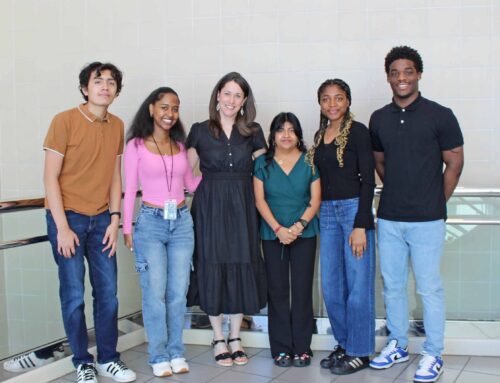When our neighborhood wanted a great band program at Lake Highlands High School, we invested in it, says David Wood, a 30-year veteran teacher at the school and a parent of two graduates. When we wanted a great athletic program, he says, we figured out a way to meet those needs. The same applies to the choir and other extra-curricular groups.
“All of those things are important to the life of a community and the life of a school,” Wood says, “but all of those same things are true for academics – we have to invest in it.”
So when a group of parents and neighborhood residents approached Wood and other faculty members last fall with just such a proposal, they embraced the idea. Dubbed the Wild for Cats campaign, the goal is to raise money for dry-erase boards, dictionaries and other academic items that are forgone each year as the state recaptures millions of dollars from Richardson ISD.
“There’s no academic boosters at Lake Highlands High School?” asks Jim Adams, a Wild for Cats organizer. “Well, now there is – that’s what we are.”
Already the group has raised more than three-fourths of its $100,000 yearly goal, mostly by holding what it calls “fireside chats” with handpicked residents and businesspeople in our neighborhood. But the high school teachers weren’t about to let residents undertake the entire effort. Wood appealed to the faculty to contribute by committing to monthly payroll deductions. So far, they have raised $3,000.
“We wanted to be on the ground floor of financing this trust fund,” Wood says. “Quite frankly, a lot of us are paying money out of our pockets anyway to take care of that stuff.”
Adams says he knows of at least one teacher who used $700 of personal money to pay for classroom equipment.
“That offends me, and hopefully that will never have to happen again,” Adams says.
One of the first Wild for Cats projects was a $1,000 fix for the copy room air-conditioner.
“Not only were the teachers dying, but the room was so hot that the copy machine would only run for 20 minutes and die,” Adams says.
Another recent purchase was a $10,000 online SAT prep course available to every student in the building. The course costs $150 when purchased individually, which isn’t affordable for many students, Wood says. Giving the entire student body access is “enormous,” he says, because the SAT is “still the biggest key for gaining access to college.”
Wood says teachers’ spirits are already lifting, thanks to the campaign.
“If you’re facing class sizes of 37 and upward, and your supplies are extraordinarily limited, and you see kids falling through the cracks, do you think it affects morale? You bet it does,” Wood says.
“But if you see your community investing in what it is you do, and you see widespread support in the community for the academic core of this institution, that goes a long way for morale.”





